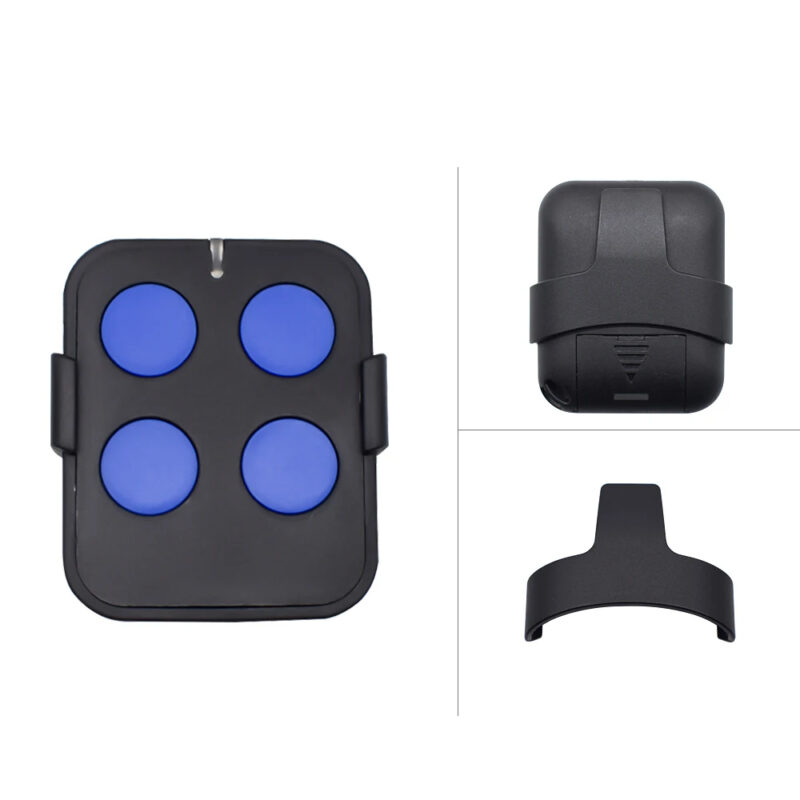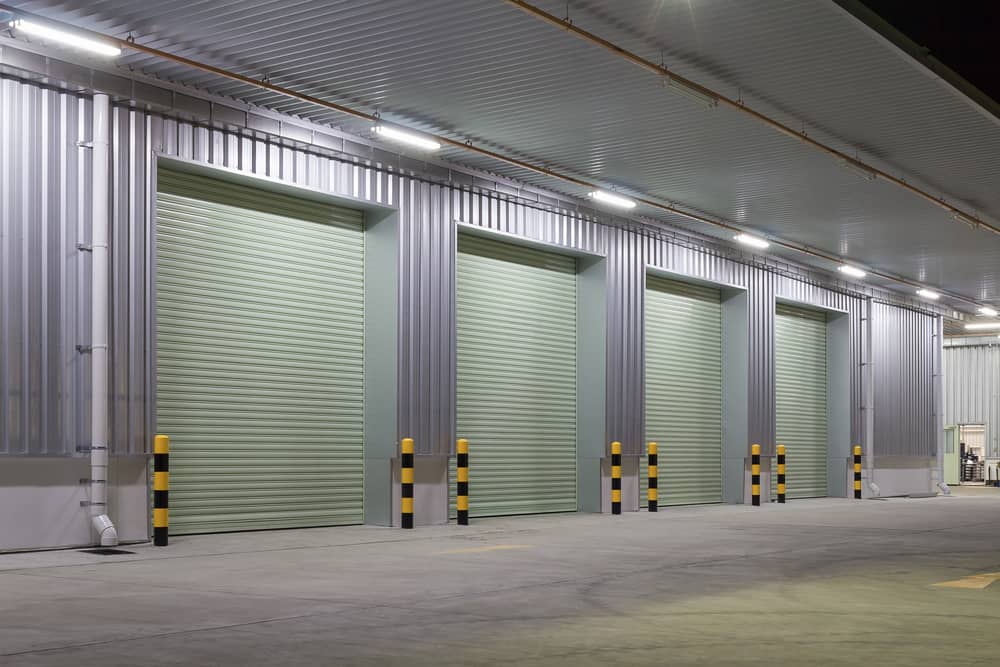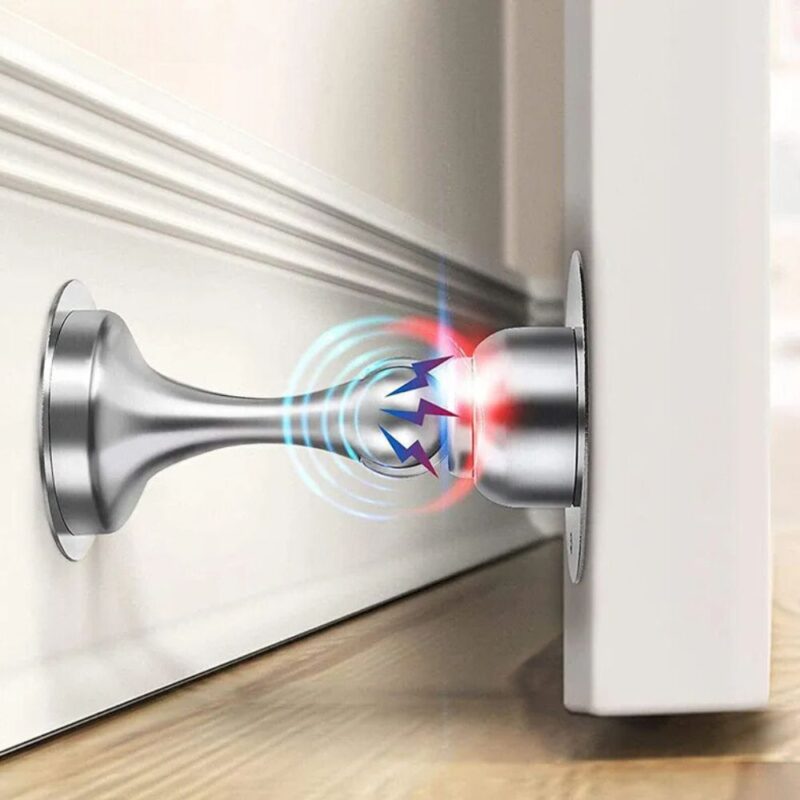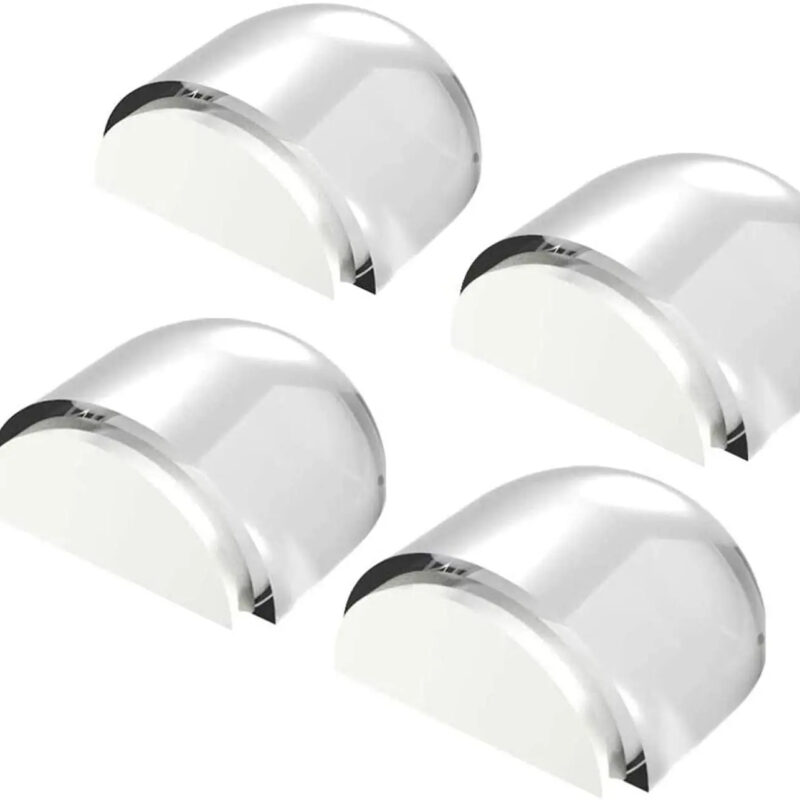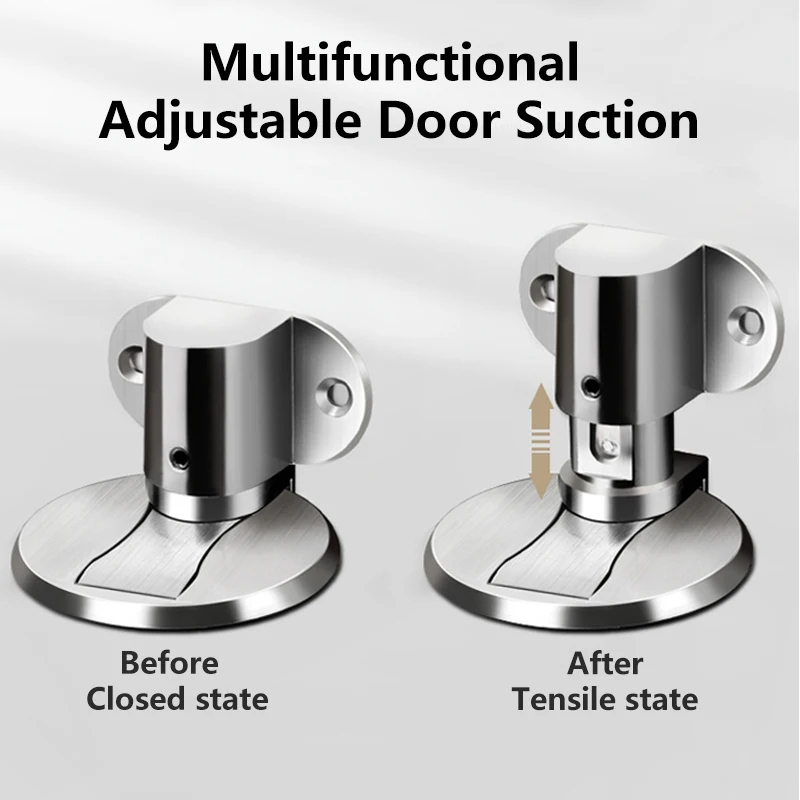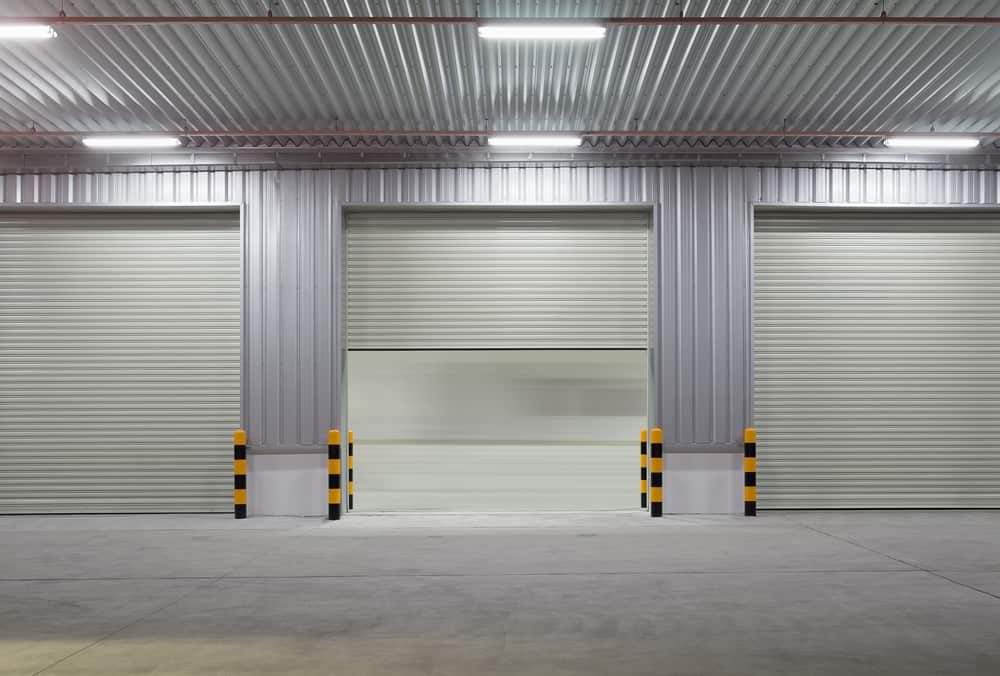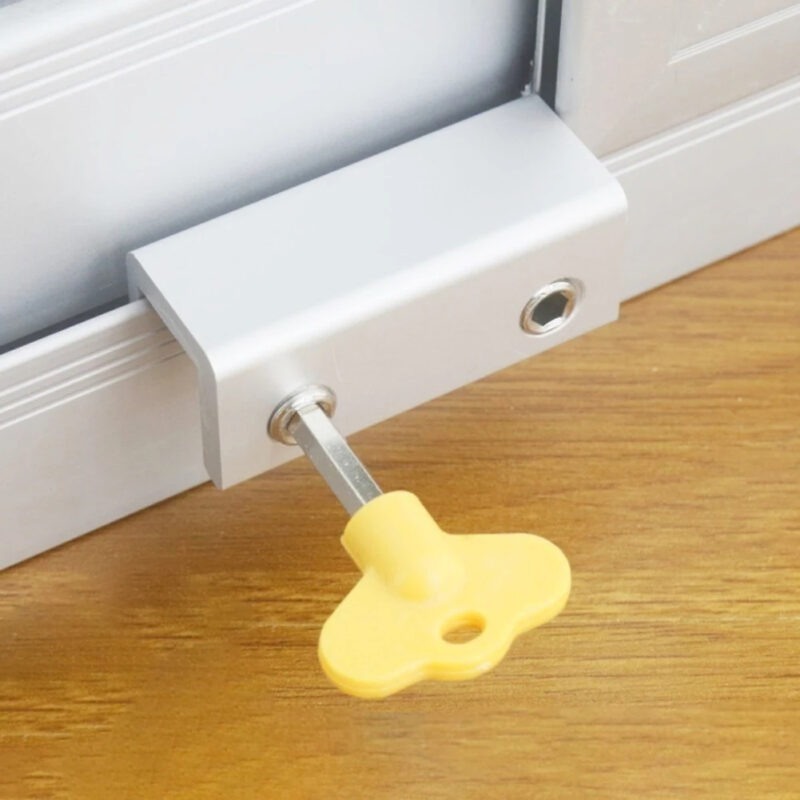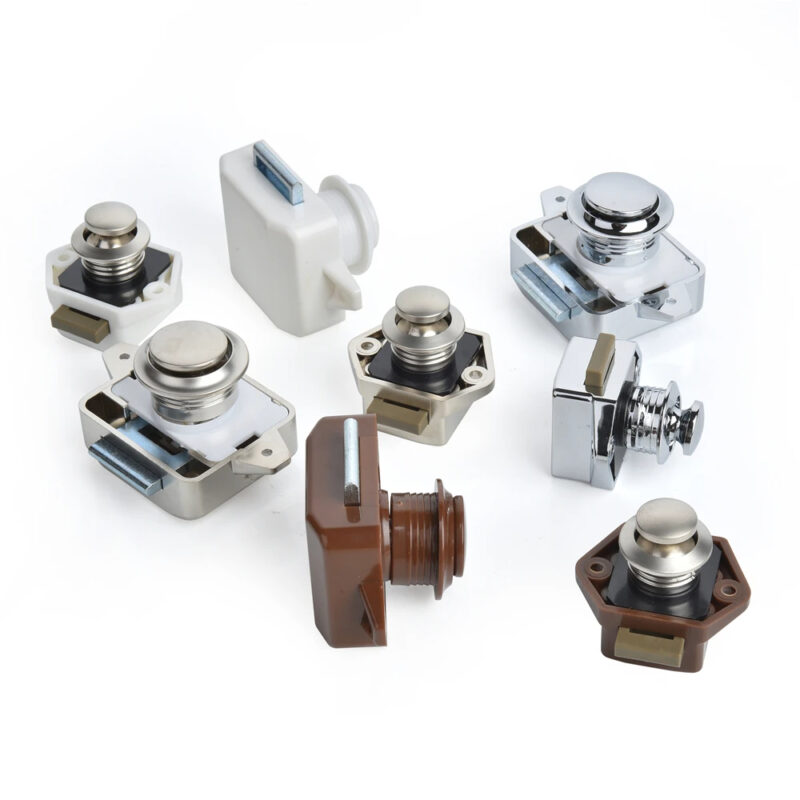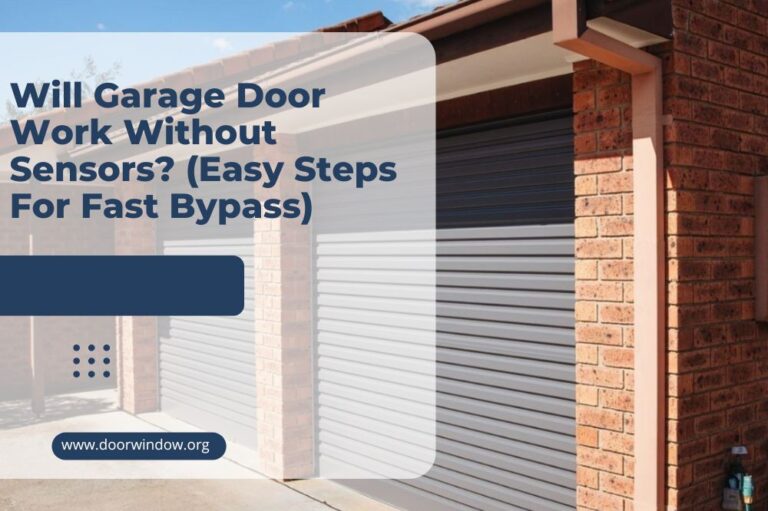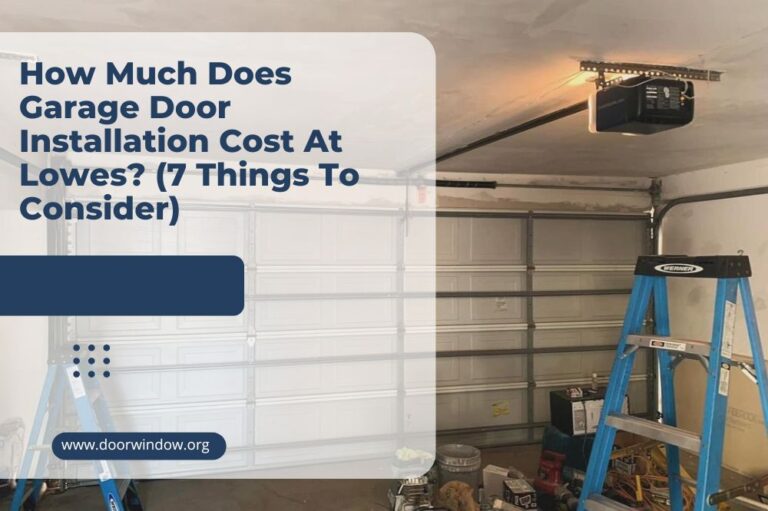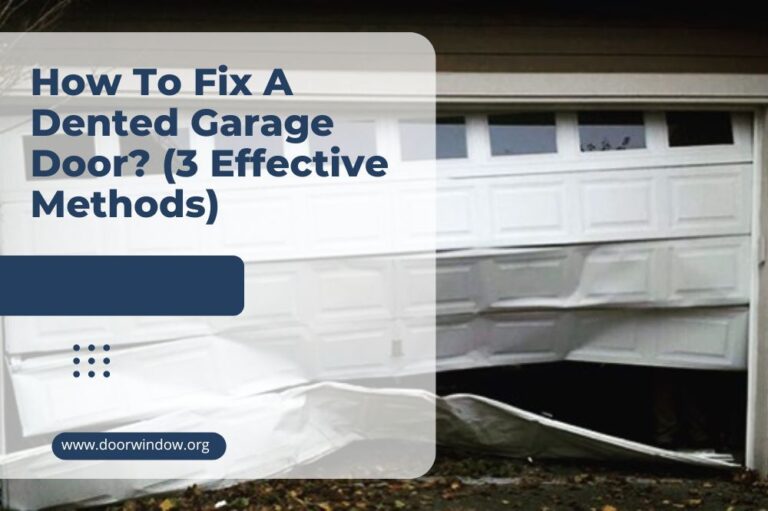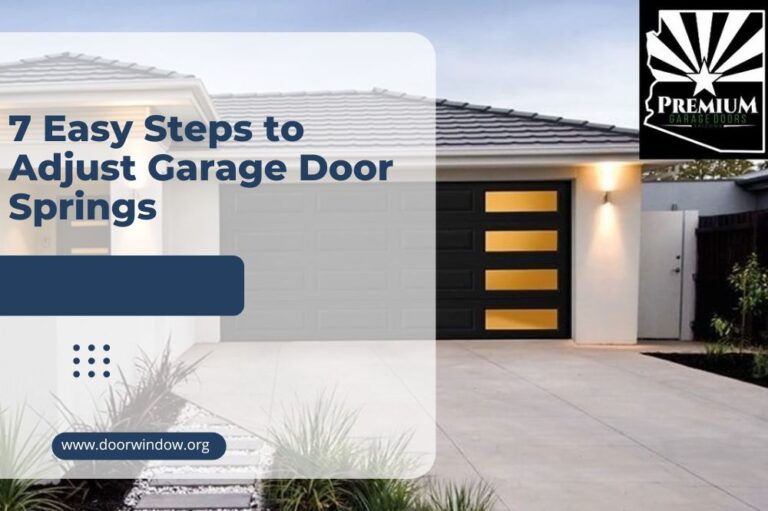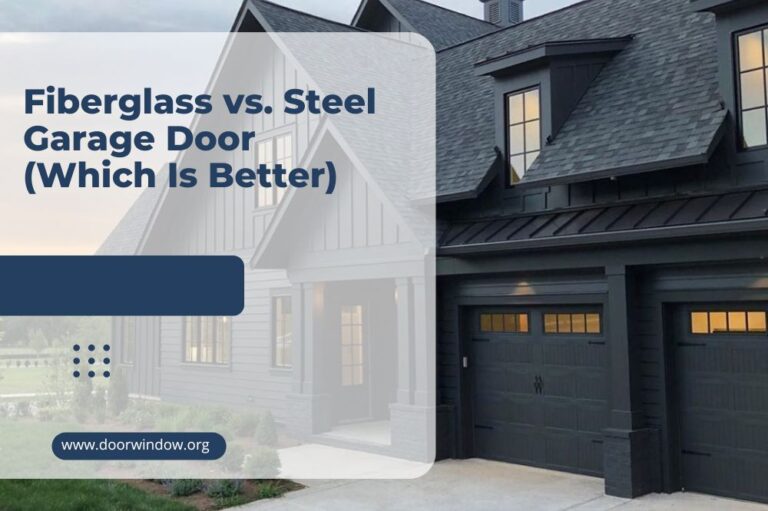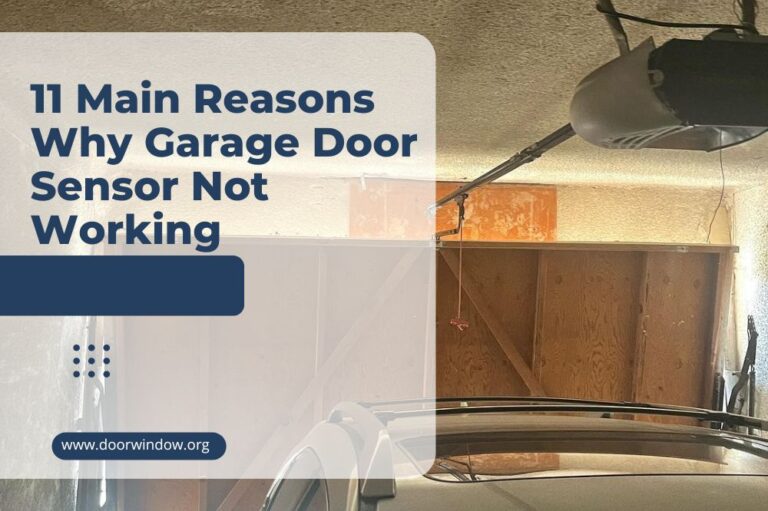Commercial Garage Door Sizes & Types (Chart)
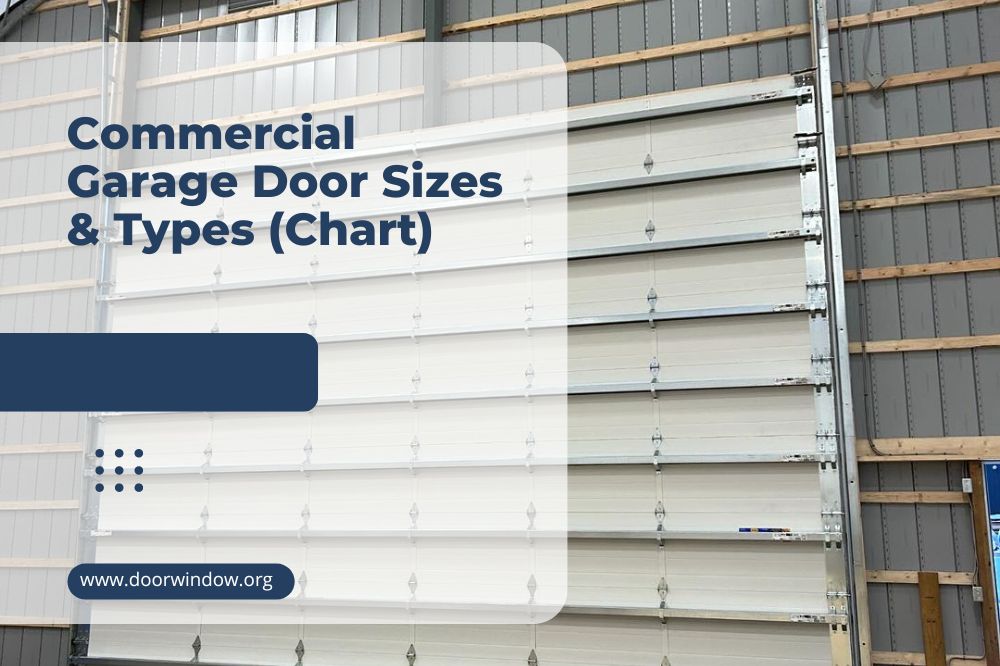
When it comes to choosing a commercial garage door, one of the key factors to consider is size. You want a door that will properly fit in your garage so it can serve your desired purpose.
Whether it will be used to lock in vehicles, load equipment and materials in and out of the facility, or handle large groups of people entering or leaving the building, take some time to acquaint yourself with the various commercial garage door sizes available on the market so you can choose correctly.
Types of Commercial Garage Doors
Before you pick a door for your garage, try to do a little bit of research to find out the different types of doors designed for commercial garages and how they work.
1. Overhead Doors
Also known as sectional doors, overhead doors are made to rise to the garage ceiling using rollers where they rest parallel to the ceiling. Because they are sturdy and durable, these are what will be found in most commercial garages and modern homes.
They often come in different materials, the most common being fiberglass, aluminum, glass, or stainless steel, and can be customized to go with a wide range of exterior designs. Some can even be modified to include a pass door or windows.
Overhead doors are operated either manually or using a motorized remote. They are usually sectioned into long, straight panels that are held in place by hinges. This unique structure is what allows them to move up and down.
When you open an overhead garage door, it will move up through a vertical track until it reaches the top where it will then start to bend and move parallel to the ceiling of the garage along a horizontal track. The open-door limit settings will determine how far the door will go before it stops.
Here is a video that shows you how an overhead garage door works.
2. Roll-up Doors
As the name suggests, roll-up garage doors open by rolling into a coil. Their panels are thinner than those in overhead doors, which gives them maximum flexibility, allowing them to move up and down easily.
Roll-up doors are a great option for commercial garages that have no room for installing rails for overhead doors or where the rails get in the way. They are sometimes referred to as coiling doors.
Like overheads, these doors are designed to stand the test of time and come enclosed or without springs to prevent rust and corrosion. They are connected to the inner wall and use high-quality guides to fully roll up and down.
Watch this video to understand how a roll-up garage door works.
3. Insulated Doors
Insulated doors have been found to be sturdier than regular doors because of the added layer of material. If you store sensitive equipment in your garage, an insulated door would be a better option.
When your garage door is insulated, it becomes more energy-efficient and stronger. It also tends to operate more quietly and last longer.
With insulation, the door prevents heat from escaping your garage during the cold season, bringing down the amount of energy required to heat the garage. Similarly, the door keeps hot air from sneaking into the garage during hot summers, which reduces the overall cost of cooling the garage.
Insulated doors significantly influence the comfort of your business center. This is because garages are usually attached to other parts of the facility, meaning, having a door that is well insulated will typically make your office more habitable.
How effective the insulation of a garage door is can be measured in two ways, namely, the U-Factor and R-Value. The U-Factor represents the amount of heat flowing through the material. Ideally, you should go for doors with a lower U-Factor.
The R-Value, on the other hand, indicates the door’s ability to slow the transmission of heat. If a door has a higher R-Value, it means that it transmits heat much slower, meaning, not much cold air enters the garage in the winter and not much heat seeps in during summer.
Standard Commercial Garage Door Sizes
Commercial garage doors vary in size, and which one you choose will depend on the size of your garage and what you use your garage for. Below is a chart that illustrates the standard sizes of overhead, roll-up, and insulated garage doors.
| Garage Door Type | Width | Height |
| Overhead | 32 ft. by 2 in. | 24 ft. by 1 in. |
| Roll-up | 30 ft. by 4 in. | 28 ft. by 4 in. |
| Insulated | 30 ft. by 2 in. | 24 ft. by 1 in. |
A typical truck will be able to drive in and out of any of these doors with ease. If the vehicles or equipment pieces entering your garage are rather large, you may need to have your door custom-made.
It is important to note that some overhead or roll-up doors may come with insulation, and because of the added material, the dimensions may be different from what is displayed in the above table.
If you are not sure about the specific measurements of your garage, it would be wise to have a garage expert help you measure the accurate length, width, and height.
Other Factors to Consider When Selecting a Commercial Garage Door
Knowing the size of your garage door is not enough. There are several other things you need to put into consideration to ensure you are installing the right garage door for your premises. To narrow down your options, ask yourself the following questions:
What’s the Door Used for?
In other words, what will you be storing in your garage? If it is something that can be harmed by extreme weather conditions, it’s best to have an insulated door.
But looking at the table above, we can see that insulated doors are usually smaller than ordinary overheads or roll-ups, meaning they may not fit in applications where the garage will be storing extra wide or tall vehicles or materials. So, think about this before you place your order.
How Important Is the Door’s Appearance?
As we stated earlier, commercial garage doors can be made from many different materials, meaning their appearance can affect the exterior of the rest of the building.
Think about where you will be installing the door. If you are going to set it up on the front of the building where it is the first thing your customers see when they come in, consider going for something visually appealing.
Even though all commercial garage doors look good when new, some will obviously look nicer than others.
If your door is going to be a key part of your building’s exterior, it would be a good idea to go for something that complements your design. But if it will be situated on the back where only you and your employees know it exists, then you don’t need to worry too much about how it looks.
Do the Door Features Comply With Your Local Building Codes?
Depending on the location of your business, the commercial building codes will have elaborate rules and regulations that direct what is or is not allowed in the area as well as in the type of building the garage is set up.
Building codes usually govern how buildings and the materials installed in them (including garage doors) are designed, constructed, and maintained, and it is important that you go through them before heading to your local garage door dealer.
The purpose of these codes is to ensure that the facility and the people in it stay safe when inside it. Since garage doors are a fundamental part of a business facility, there are certain rules on what can and cannot be installed on them, so make sure to know these beforehand.
How Much Do You Wish to Spend?
Because different commercial garage doors are made from different materials and in different designs, it goes without saying that their prices will vary from material to material and from design to design.
Think upfront about your budget to avoid wasting time on doors you are not going to buy. Do your research to know how much the installation is going to cost and what extras you will be required to buy.
However, be careful about compromising on durability or safety just to save a few bucks. It may cost cheap now but drain all your savings later in repairs and maintenance. So, even if you are on a budget, try to go for the highest-quality product you can get for the money.
The Takeaway
Commercial garage doors come in different sizes to suit every business owner’s needs. To get one that serves you the best, know exactly how big your garage is and what you hope to achieve.
If you have enough space below your ceiling, an overhead door would be a great option. It is also wider, which makes it perfect for a garage that stores wide equipment. Garages with constrained spaces would be better off with roll-up doors. Although they’re slightly narrower than regular overheads they’re great for taller garages because they’re taller.


